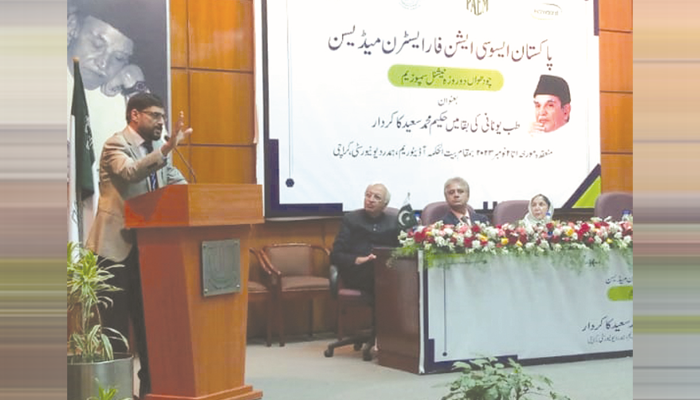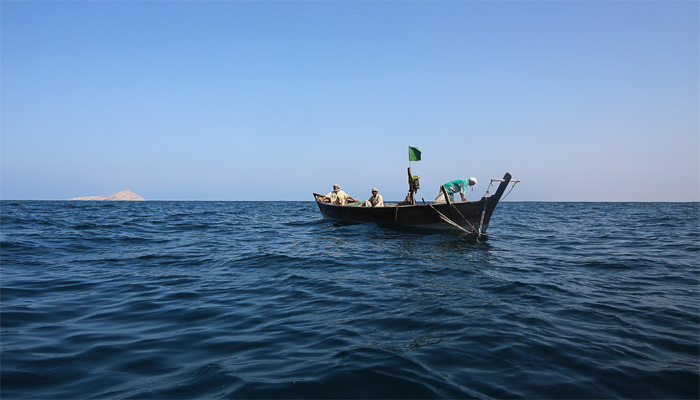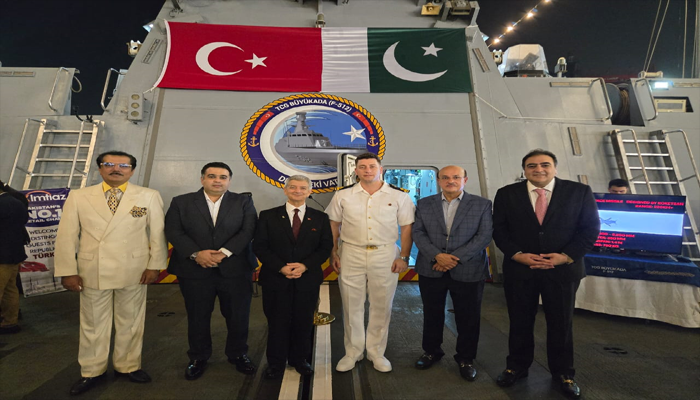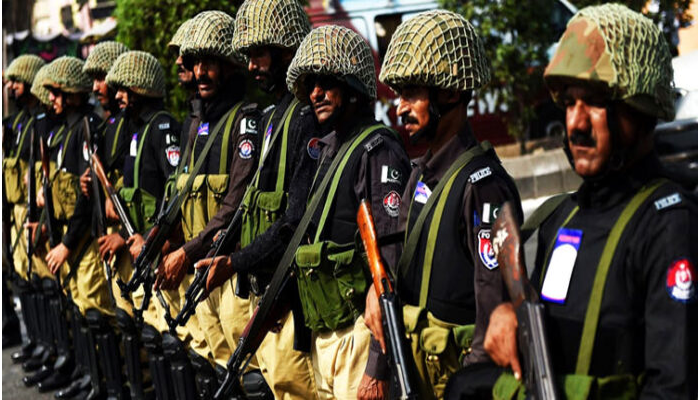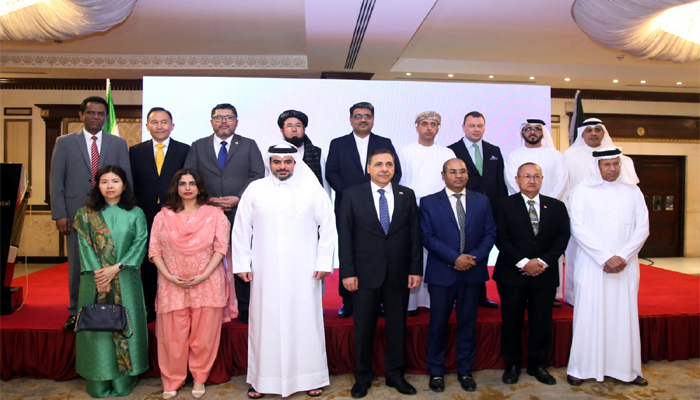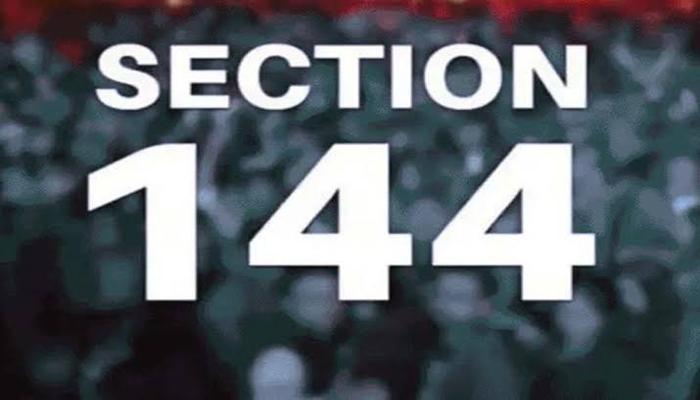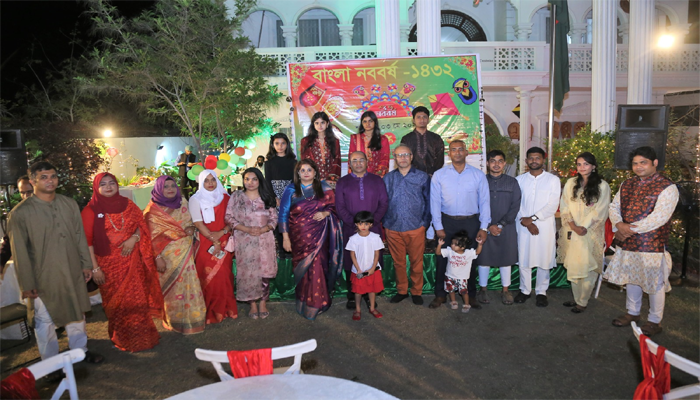KARACHI: On the second day of the two-day 14th national symposium organized by the Pakistan Association for Eastern Medicine (PAEM) in collaboration with Hamdard Pakistan, the event focused on highlighting the "Role of Shaheed Hakim Mohammed Said in the revival of Tibb-i-Unani" and paid tribute to this renowned physician, intellectual, and social reformer.
The opening session was chaired by Sadia Rashid, the President of Hamdard Pakistan. Dr. Ahsan Qavi Siddiqui, CEO of the Sindh Healthcare Commission, was the chief guest, while Prof. Dr. Azhar Ali Shah, Pro Vice Chancellor of Sindh University-Larkana Campus, attended as the guest of honor and delivered a keynote speech.
During the symposium, Prof. Dr. Azhar Ali Shah emphasized the significant role played by Shaheed Hakim Mohammed Said in reviving Tibb-i-Unani, despite facing numerous challenges. He noted that recognizing the achievements of remarkable individuals is crucial for societal progress and that the younger generation can gain valuable insights into Hakim Mohammed Said's efforts to promote health and education in the country.
Dr. Ahsan Qavi Siddiqui also highlighted Shaheed Hakim Mohammed Said's contributions, particularly his role in nurturing the intellectual growth of multiple generations through his monthly editorials in Hamdard Naunehal. He mentioned that Shaheed Hakim Mohammed Said restored people's confidence in Unani medicine, even when it was in decline in the subcontinent.
Sadia Rashid expressed gratitude to the guest speakers and advised students to make the most of their time by using it wisely. She encouraged them to read beyond their course materials, as recommended by Hakim Mohammed Said.
In the symposium's first session, Prof. Dr. Hakim Abdul Hannan, President of PAEM, and Prof. Dr. Syed Shabib-ul-Hassan, Vice Chancellor of Hamdard University, shared their insights.
Hakims from different cities participated in the symposium, paying homage to Shaheed Hakim Mohammed Said and highlighting various aspects of his personality and contributions through their research papers.

